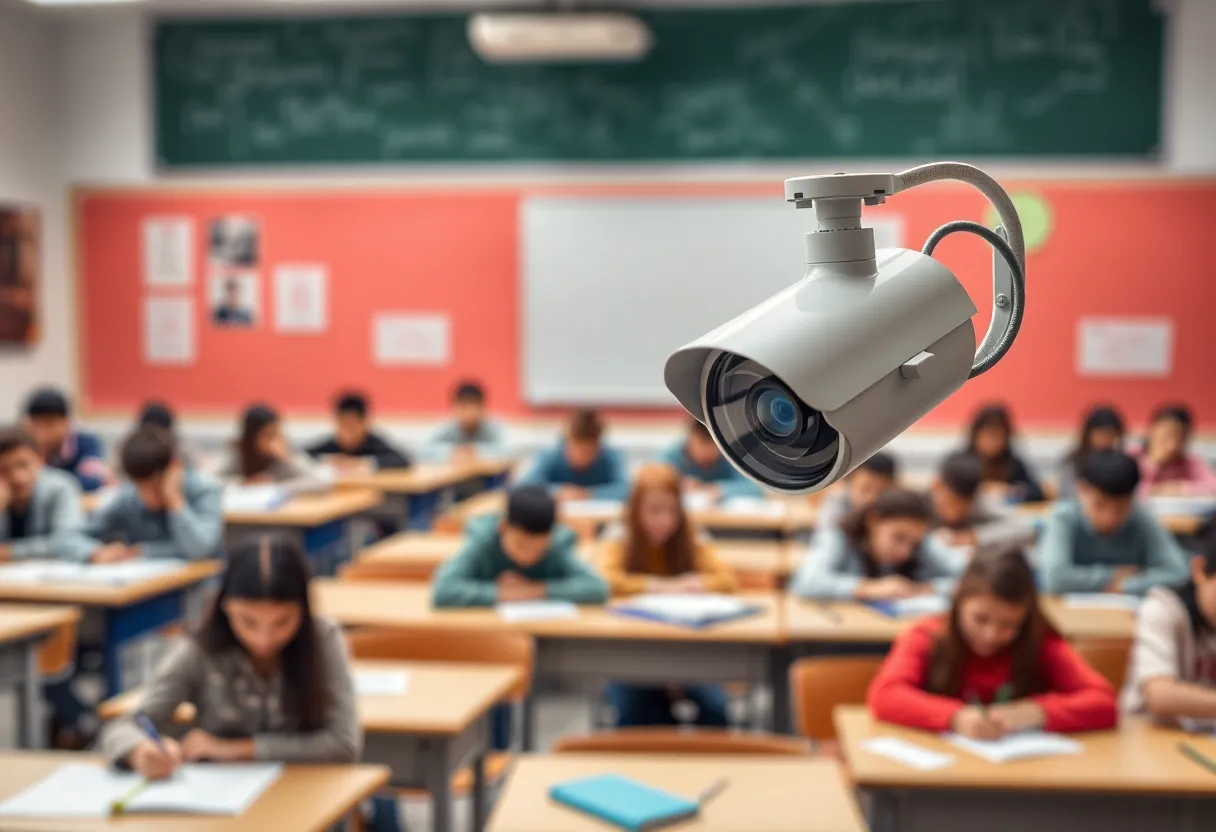News Summary
House Bill 3216 in South Carolina aims to install cameras in public school classrooms, stirring debate about privacy and oversight. While the bill seeks to prevent ideological bias in teaching, educators express concerns about constant monitoring and its effect on teaching styles. Costs and logistical challenges further complicate the proposal, which has divided opinions among parents and teachers. As discussions unfold, the future of education in South Carolina hangs in the balance, highlighting the delicate balance between transparency and educator autonomy.
South Carolina Proposes Controversial Bill Requiring Classroom Cameras
In the charming city of Greenville, South Carolina, a bold new proposal is stirring up conversations among educators, parents, and lawmakers alike. House Bill 3216 has been introduced, and it’s certainly got people talking! This bill aims to install cameras in public school classrooms across the state, capturing all classroom instruction and making those recordings accessible to the public, with some privacy restrictions.
The Reason Behind the Bill
State Representative Mike Burns, who hails from Greenville County, is the brain behind this intriguing piece of legislation. He believes that the bill is necessary to prevent what he refers to as “rogue” teachers from imparting lessons that might push certain ideologies onto impressionable young minds. In his view, the bill serves as a protective measure to ensure that students receive a well-balanced education free from personal bias or agendas.
Privacy Concerns Take Center Stage
However, this proposal has raised quite a few eyebrows, especially among educators who are now expressing serious concerns about privacy. Sherry East, president of the South Carolina Education Association, has voiced strong objections, suggesting that the bill threatens to erode the trust and professionalism that educators work so hard to build. Teachers are worried about being watched constantly and how that might impact their teaching methods. With classroom recordings being made public, teachers could feel pressured to stick rigidly to lesson plans, eliminating their creative teaching styles.
What’s particularly eye-catching about this bill is that it doesn’t mention safety or security—often cited as reasons for installing cameras in schools. Instead, it leans heavily on the idea of transparency and parental engagement. While parents are encouraged to observe their children’s classrooms, the implications of having recordings available to the public are still uncertain.
The Practical Implications
Addressing the potential logistical hurdles, educators have also raised concerns about the cost and resources required to implement this bill. Installing and maintaining cameras would not be a walk in the park. Schools would need to procure the necessary equipment and ensure proper cybersecurity protocols are in place to protect sensitive data. Critics warn that the funding required for this initiative could divert money from more pressing educational needs, like hiring teacher aides who provide invaluable support to both teachers and students.
Additionally, some legal experts predict that House Bill 3216 may face challenges in passing due to its controversial nature. It’s clear that the education community is split on the matter. While some believe monitoring classroom activities can enhance accountability, others advocate for administrative oversight as a more effective approach.
Looking to the Future
The South Carolina Parent-Teacher Association, a key player in the education landscape, has yet to take an official position on the bill but plans to address it during an upcoming meeting. The discussions are likely to delve into the implications that this legislation could have on classroom environments and teacher morale.
In the ongoing debate, Burns has likened the situation to driving; suggesting that those who follow the rules should have no qualms about being subject to oversight measures. However, many teachers perceive this bill as an invasion of privacy, creating an environment ripe for “gotcha moments.”
As the conversations unfold, one thing is certain: the introduction of House Bill 3216 has sparked an essential dialogue about the intersection of education, privacy, and parental involvement. In a world where technology increasingly finds its way into the classroom, how we choose to balance oversight with the autonomy of educators will be critical in shaping the future of education in South Carolina.






